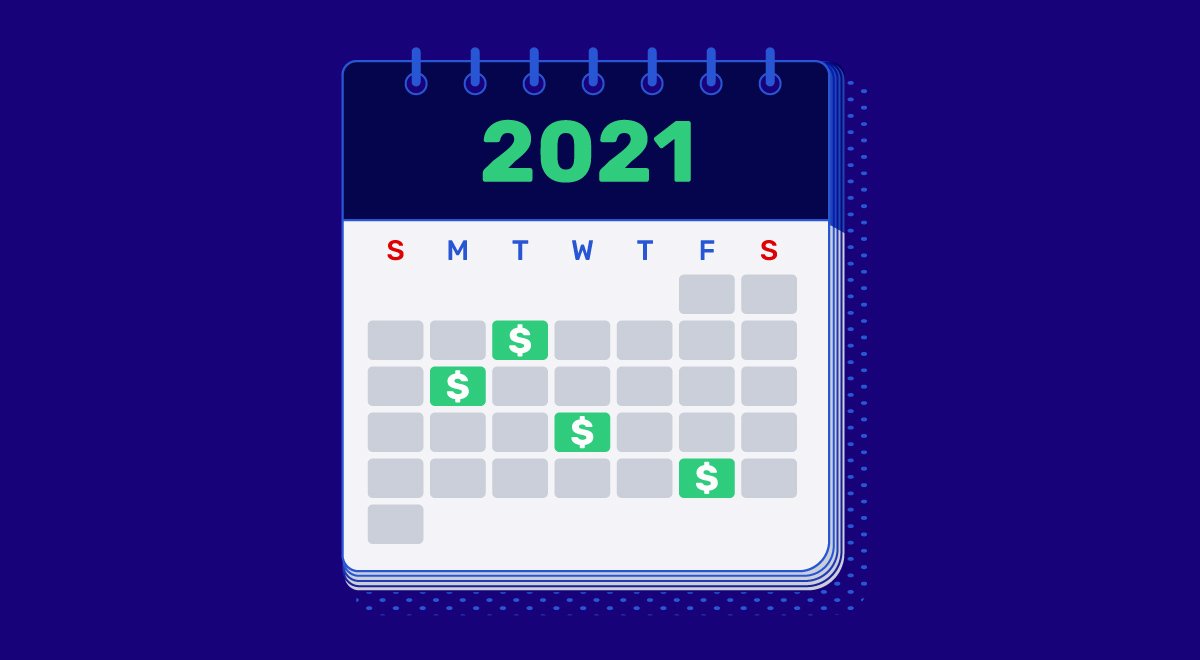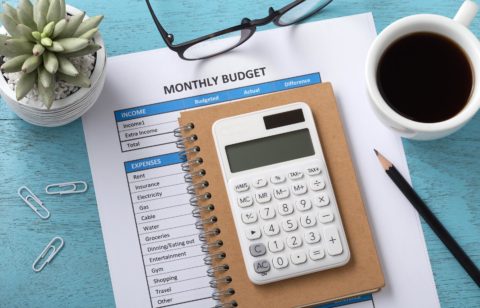The top New Year’s resolutions amongst Americans are exercising more, eating healthier, and saving money. Unfortunately, only 4% manage to stick to their goals. If you’re determined to make or save more money this year, you need to know how to set realistic New Year money goals.
Here are a few ways to increase your chances of success for 2021.
Know Where You Stand Financially
Before you start setting your New Year’s money goals, you need to know where you stand financially and where you want to be. Determine your net worth by subtracting what you owe (liabilities) from what you own (assets). Your assets can be personal checking and savings account balances, personal property, real estate, and any investments in your name. Liabilities are what you owe creditors, such as a home mortgage, credit card balances, and other loans. If your assets are higher than your liabilities, you have a positive net worth. If it’s lower, paying off your debt and getting your finances out of the red will take some work and can be a big New Year money goal.
Figure out your finances, assess your situation, and start a list of your achievable New Year money goals.
Set Realistic New Year Money Goals
What’s your ideal financial situation? A million dollars might sound great but your money goals need to be realistic and attainable. It’s easier to fail if you don’t have money goals that you can actually achieve with laid-out steps to get there. Here are some common New Year’s money goals to consider.
Pay Off Debt
Paying off debt is always a top money goal, and it takes hard work, dedication, and a plan. Put your debt into perspective to how much money you’re bringing home by calculating your debt-to-income ratio. If you’re serious about getting out of debt, you’ll first need to figure out why you’re in debt and consider a lifestyle change. What are the actionable steps that you can take right now? Start small and make it achievable.
Set a Budget
Kick those bad spending habits to the curb and give yourself financial security with a budget. Setting a budget going into the new year is perfect to add to your list of New Year’s money goals. A budget is one of the most effective tools for money management, and it helps you work toward long-term financial goals, ensures you don’t spend money you don’t have, and ensures you save for retirement.
Save for Retirement
Too many people put off saving for retirement until it’s too late. Start building your nest egg by setting aside a portion of your income from each paycheck, spend less, or start a traditional retirement savings plan.
Stay Organized and Track Spending
Keeping track of your spending and organizing your finances is another one to add to the list of New Year money goals. Tracking your spending will give you a better picture of where you stand, and it’s an easy step to take toward better money management.
Establish an Emergency Fund
The new year is a good time to establish and grow an emergency fund. Experts generally recommend three to six months’ worth of living expenses set aside for emergencies. You never know when something might happen.
Break Up Your Goals into Smaller Steps
If your New Year money goals seem too substantial to manage, break them up into measurable steps. Instead of saying you’ll buy a house within the next year, make it your goal to set money aside from each paycheck for a down payment by August. Be clear and be specific to keep yourself on track. Making your goals attainable and giving yourself a deadline gives you a clearer picture of what it takes to achieve that goal, and you can track your progress along the way.
Don’t underestimate the impact of small wins. Tracking your progress helps you stay focused and disciplined on your money goals. Achieving these steps, no matter how small they may be, is the best way to stay motivated.
Achieving Your New Year Money Goals
Your money goals may seem too big to accomplish, but assessing your financial situation and breaking up realistic goals into actionable steps makes your chances of success even greater. Start the year off right, don’t get discouraged, and work toward your financial goals.





